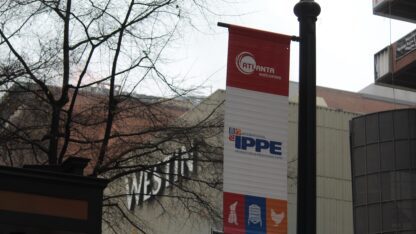What Does The Farm Bill Mean For Georgians?

(Story updated to include full audio interview with Society of St. Vincent Depaul–Georgia)
Crop insurance, peanut subsidies, corn production – they’re all part of the farm bill, signed today by President Barack Obama after two years of congressional debate.As heard on the radio.
Food stamps are the biggest slice of that nearly $1 trillion dollar pie, and that program is seeing a cut. Farmers will also see some changes under the new bill, primarily to crop insurance and subsidies.
Don Koehler, who heads the Georgia Peanut Commission, says state farmers now have some needed direction for the upcoming growing season.
“This gives us some stability, and that’s a stability for rural south Georgia, and Georgia in general,” Koehler says.
The bill ends a controversial crop subsidy program that paid farmers based on acreage, not current crop prices. In its place is an enhanced crop insurance program, triggered only through losses.
Some Southern farmers say that favors their Midwestern counterparts,since there’s no board of trade for peanuts, unlike corn or soybeans.
Koehler says the change is a reality of the financial climate. He says peanut farmers will have to do a better job planning for the market.
“The American taxpayers didn’t want to pay farmers a level of support when they didn’t need it, and when markets are good, we didn’t need the direct payment,” Koehler says.
The commission says about 50 percent of the nation’s peanuts come from Georgia’s estimated 14,000 peanut farms.
Despite support from many in the agriculture community, the bill’s $8-billion cut to the food stamp program has others saying it hurts those who most need the government’s help.
“Imagine if I told you that you had $1.44 per day to eat on. That’s what a food stamp recipient goes through,” says John Berry, CEO of Society of St. Vincent Depaul – Georgia.
Berry says some cuts to the food stamp program are obvious, such as the reduction in benefits to recipients.
Others cuts aren’t as obvious, including a ban on billboard advertising.
“If you’re on SNAP [the federal food stamp program], you’re probably not getting a subscription to the newspaper. You may not even have a TV to see commercials,” says Berry. “So a billboard tells you, ‘Hey. This is a program I can be eligible for.’”
Berry calls the cut “a back door way” of keeping the information from those who most need it.
9(MDAxODM0MDY4MDEyMTY4NDA3MzI3YjkzMw004))







